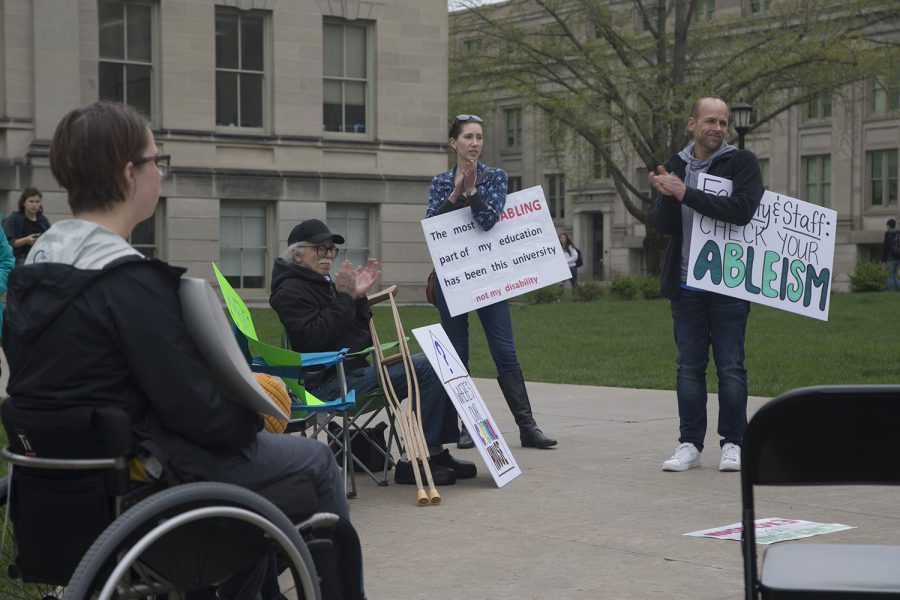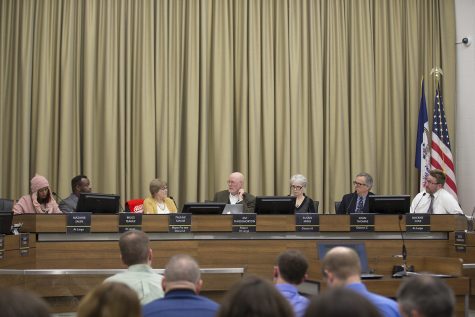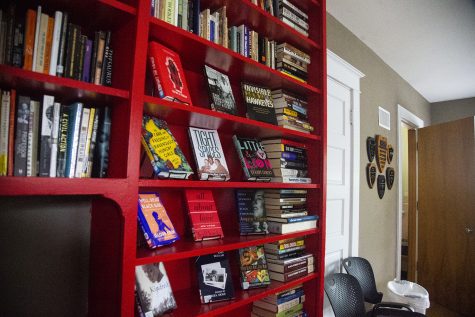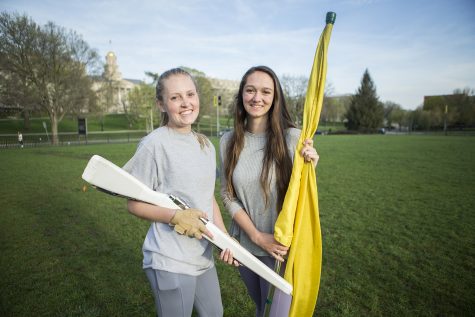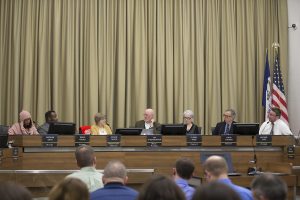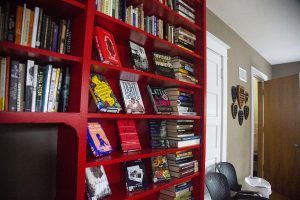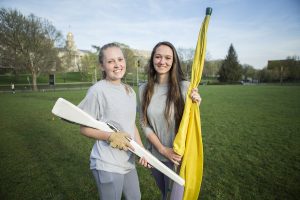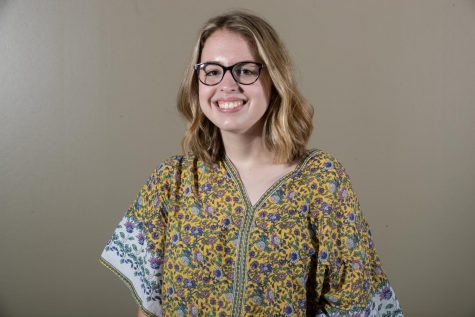Students rally for disability awareness and inclusion on campus
UI students took to the Pentacrest Wednesday to advocate for expanded disability services on campus.
Attendees clap after one of the volunteering speakers on the Pentacrest on Wednesday, May 1, 2019. UI Students for Disability Advocacy & Awareness organized this rally to speak about the injustice that students with disabilities face on campus.
May 1, 2019
Students with disabilities attending college can face numerous challenges — from not being able to get to class when the elevator is broken to being forced to disclose their disabilities in front of their classmates.
University of Iowa students and alumni braved a cold and gray day on the Pentacrest to share their stories of success and setbacks while at the UI ‚— and to call for change.
UI Students for Disability Advocacy and Awareness, now in its 10th year, hosted the rally. The group cited moving the Student Disability Services office from its current location in the basement of Burge Hall as the top priority for the organization.
“I think it’s really important that people realize that the SDS office location is a big important issue,” UISDAA President-elect Kaydee Ecker said. “That literally is … the tip of the iceberg. It’s one very big, small thing, when you look at this campus.”
UISDAA listed a multitude of concerns, including the lack of a formal complaint system, the inaccessibility of many buildings on campus, and the lack of any non-academic support from SDS, as institutional barriers hindering the success of students with disabilities at the UI.
Ecker said that SDS only provides academic accommodations and should add further medical and mental health support services for students with disabilities.
“Being able to provide services outside of [academic accommodations] is really, really important. A lot of other universities provide academic coaching, they provide neuropsychological testing,” Ecker said. “A lot of students, if they have a learning disability, if they don’t have the funds to go out and get the diagnosis, then they can’t get accommodation. Having that onsite is very important.”
Another important priority for UISDAA is the creation of a disability cultural center. Ecker envisions this functioning in a similar fashion to other cultural houses already on campus.
“Something we’ve talked about is we do not want it to be in the same place as SDS. We want our services and our community to be separate, in the same way that you wouldn’t want to have the LNACC (Latin Native American Cultural Center) or the APACC (Asian-Pacific American Cultural Center) in with the CDE (Center for Diversity and Enrichment) — you want to have your own space,” Ecker said.
RELATED: Petition to change location of student disability services gets 2,800 signatures
Ecker said organizing can be difficult for UISDAA without a designated space.
“It’s difficult because we want to organize events like this but it’s difficult because we don’t have a central place we can meet,” Ecker said. “We have to find that space for itself and its frustrating feeling we’re the only community that’s left out.”
UISDAA member Austen Beaird emphasized the disability community at the UI is large and diverse.
“The disability community here is very big, and opinions are all over the place – but this is a united front,” Beaird said.
Andrea Courtney, the current president of UISDAA, said disability should be treated as a form of diversity in her remarks at the rally.
“I think as far as a student with a disability, there seems to be a lack of awareness, a lack of inclusion with the sense of disability as a form of diversity,” she said. “I think students with disabilities have a lot to offer a university and a classroom, I think we bring a lot of different perspectives. I think there’s a lot of strengths that come with living with a disability.”



